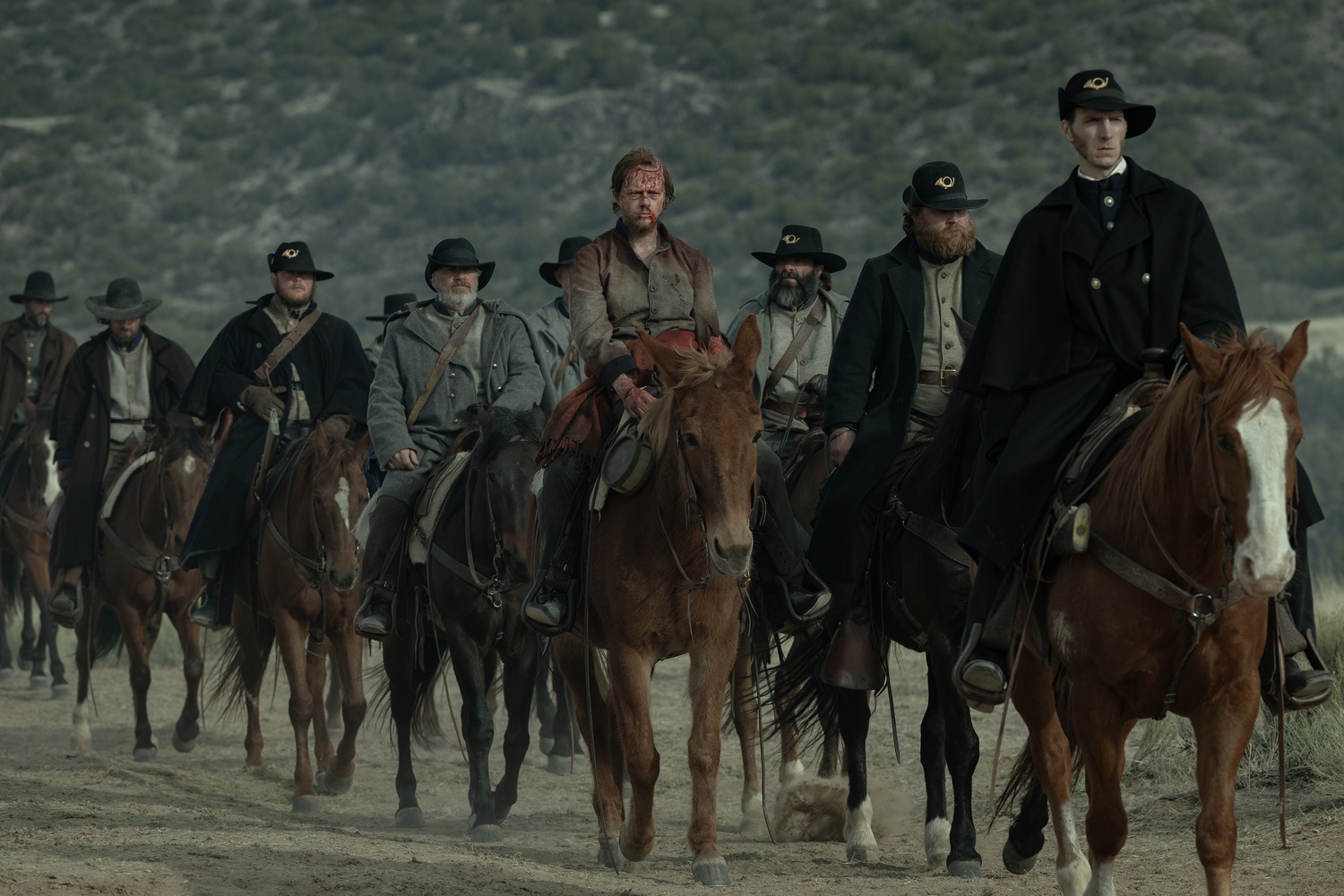
News
Nearly 200 Harvard Affiliates Rally on Widener Steps To Protest Arrest of Columbia Student

News
CPS Will Increase Staffing At Schools Receiving Kennedy-Longfellow Students

News
‘Feels Like Christmas’: Freshmen Revel in Annual Housing Day Festivities

News
Susan Wolf Delivers 2025 Mala Soloman Kamm Lecture in Ethics

News
Harvard Law School Students Pass Referendum Urging University To Divest From Israel
‘American Primeval’ Review: The Untold Stories of the Frontier
4 Stars

For decades, Hollywood has shaped the myth of the American West through its fixation on cowboys and Indians — a genre that has dominated cinema and television with romanticized portrayals of frontier life. However, “American Primeval,” a new limited series on Netflix from Mark L. Smith — the writer of the Academy Award-winning “The Revenant” — takes a different approach. Much like how “The Revenant” stripped away the West’s idealized imagery to reveal its brutal, unforgiving reality, “American Primeval” delivers a raw and unfiltered portrayal of the violent struggles that shaped the United States. Set against the backdrop of the Utah War of the 1850’s — a conflict between Mormon settlers and the U.S. government — the series delves into themes of survival, displacement, and the relentless brutality of America’s frontier past.
The series weaves together two parallel female narratives, offering a poignant exploration of the often-overlooked strength and resilience of women on the American frontier. The first storyline follows a mother’s unwavering determination to protect her son, with Sarah Rowell (Betty Gilpin) offering a powerful portrayal of motherhood defined by both strength and self-sacrifice. The second storyline follows Abish Pratt (Saura Lightfoot-Leon), a young Mormon woman who — after surviving a militia attack reminiscent of the Mountain Meadows Massacre — is separated from her husband and witnesses the brutal murder of her crew by their own religious brethren. Disillusioned, she seeks justice, joining a Native American rebel group where she emerges as a fierce and insightful leader. Together, these narratives provide a raw and compelling portrayal of women's resilience, allowing audiences to witness their journey toward self-actualization, forged through immense hardship.
The Native American presence in this series adds a compelling layer to the narrative, addressing a crucial gap in the retelling of the American frontier. Historically, the story of the Native peoples who first inhabited this land has been overlooked, with older Western films often casting white actors in Native roles, perpetuating harmful stereotypes that distort their true history and culture. In “American Primeval,” the entire Native American cast of characters is played by Native actors; Derek Hinkey portrays Red Feather, a Shoshone warrior, and Shawnee Pourier plays Two Moons, a young Native girl who flees her village and joins the main characters on their journey West. Their powerful performances authentically portray the experiences of Native Americans during this period, bringing depth and realism to the story. The creators of “American Primeval” enlisted Julie O’Keefe, a member of the Osage Nation, as a cultural consultant and project adviser to ensure an authentic portrayal. As a result, “American Primeval” presents a nuanced portrayal of Native Americans that avoids both romanticized and stereotypically savage depictions. This portrayal humanizes Native characters, showing both noble and brutal responses to their harsh reality. Rather than labeling them as purely good or bad, the series explores how survival shapes their choices.
The depiction of Mormons in “American Primeval” on the other hand has stirred up quite the negative attention from the Mormon Church, including a statement from The Church of Jesus Christ of Latter Day Saints for the “dangerously misleading” depiction of their religion. Specifically, despite the series’ commitment to historical accuracy, many followers of the faith are unsettled by its portrayal of their prophet, Brigham Young, as an antagonist.
However, this is precisely what “American Primeval” sets out to do — it refuses to sanitize history, instead confronting the darker aspects of America’s past. By exposing the brutality and moral contradictions that shaped the frontier, the series challenges viewers to sit with uncomfortable truths rather than portray an idealized narrative.
If one is looking for a series with a happy ending, “American Primeval” will not be a satisfying watch. But this is not a story without hope — it simply reveals itself in unexpected ways. In the first episode, mountain man Jim Bridger (Shea Whigham) states, “Civilization and civilized are two different words entirely.” Civility is not found in laws or institutions but in fleeting acts of compassion — moments where individuals rise above their circumstances to show humanity in an unforgiving world. It is in these rare instances that the series offers a glimmer of hope, restoring the viewer's faith in humanity amid the brutality.
—Staff writer LeMonie K. Hutt can be reached at lemonie.hutt@thecrimson.com.
Want to keep up with breaking news? Subscribe to our email newsletter.
Most Read
- Claudine Gay Is Still Rooting for Harvard
- After Toner Identified as Suspected Brothel Client, City Council Splits Over His Next Steps
- Harvard Faces Calls To Disband PSC for Violating New Antisemitism Policies
- First They Came for Columbia
- Cambridge City Councilor Paul Toner Charged With Buying Sex Through Brothel Ring
From Our Advertisers

Over 300+ courses at prestigious colleges and universities in the US and UK are at your disposal.

With innovative financial tools combined with financial education, Collegiate empowers students to take control of their finances and build confidence in their money management skills.

Serve as a proctor for Harvard Summer School (HSS) students, either in the Secondary School Program (SSP), General Program (GP), or Pre-College Program.

With an increasingly competitive Law School admissions process, it's important to understand what makes an applicant stand out.

Welcome to your one-stop gifting destination for men and women—it's like your neighborhood holiday shop, but way cooler.

Admit Expert is a premium MBA admissions consulting company, helping candidates secure admission to top B-schools across the globe with significant scholarships.
